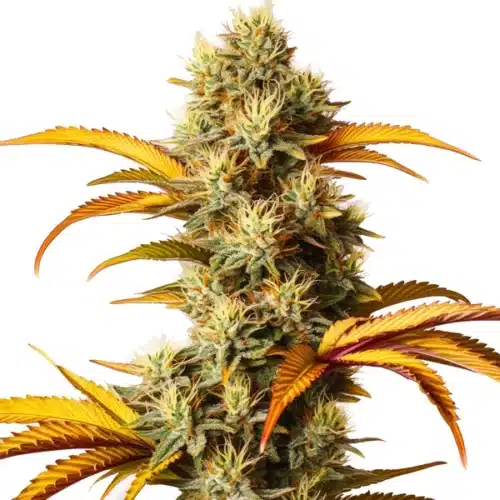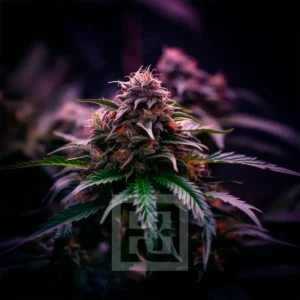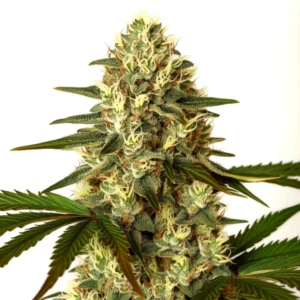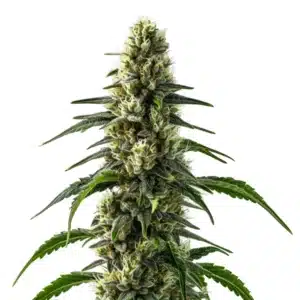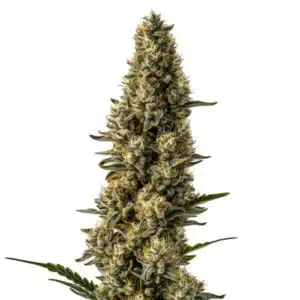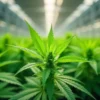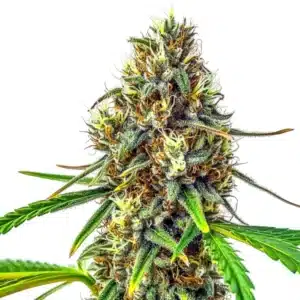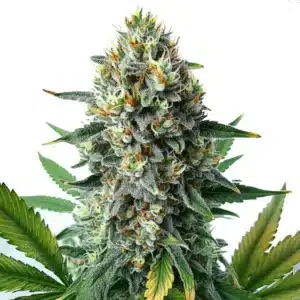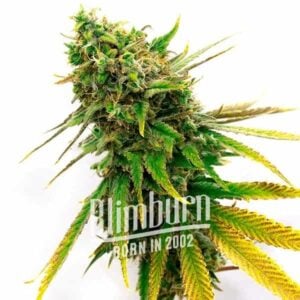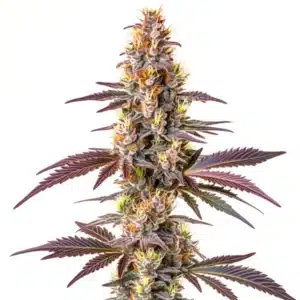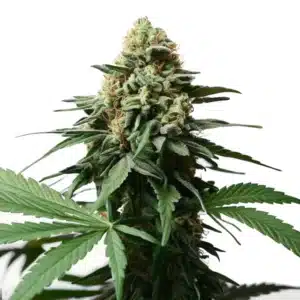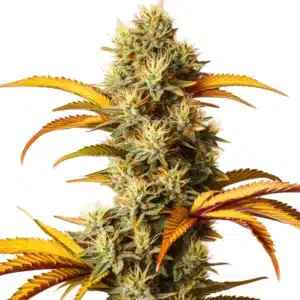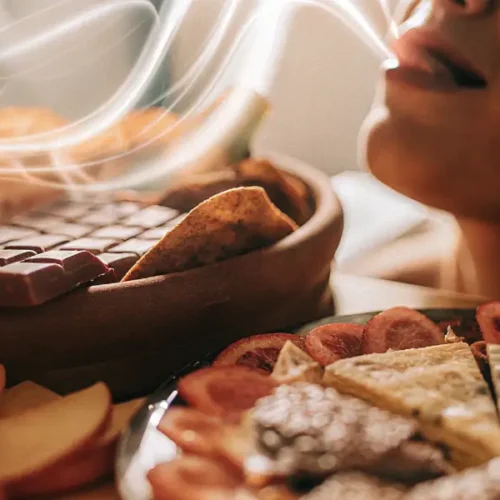
Does CBD Suppress Appetite? Evidence and Insights
CBD and the Endocannabinoid System
CBD Interaction with ECS Receptors
The endocannabinoid system (ECS) is so fundamental to human health that it begins to develop while we are a fetus, where it plays a critical role in helping to form our other organic systems. This is why cannabinoid receptors are found throughout the entire body and are so integral to our health.
Cannabidiol (CBD) engages with these ECS receptors in a subtle yet meaningful way. Although it shows low direct affinity for CB1 and CB2 sites, CBD still influences their signaling pathways indirectly. By dampening CB1 activation, CBD can shift the balance of appetite signals in the brain. Moreover, CBD boosts levels of the “bliss molecule” anandamide by inhibiting the enzyme FAAH, which normally breaks it down.
Recommended Strains
Alien Technology
 THC: 16% - 19%
THC: 16% - 19% Type of seed: Feminized
Type of seed: Feminized Phenotype: Mostly Sativa
Phenotype: Mostly Sativa Day to flower: 8 - 10 weeks
Day to flower: 8 - 10 weeks
Alien Technology Fast Version
 THC: 16% - 18%
THC: 16% - 18% Type of seed: Fast Flowering
Type of seed: Fast Flowering Phenotype: Mostly Indica
Phenotype: Mostly Indica Day to flower: 8 - 10 weeks
Day to flower: 8 - 10 weeks
Appetite Regulation Pathways
Our feelings of hunger depend on a network of hormones, including ghrelin and leptin. CBD may adjust how these hormones communicate with brain centers, leading to a more balanced appetite. By potentially reducing ghrelin secretion, CBD can ease sudden waves of hunger. Simultaneously, some data suggest it could enhance leptin sensitivity, encouraging feelings of fullness. In addition, CBD’s anti‑inflammatory effects in the digestive tract support gut health and a steady flow of hunger‑related hormones.
Promos & Deals
Clinical Research on CBD and Appetite
Several human trials have examined how CBD affects appetite. In low to moderate doses, participants often report milder sensations of hunger. One study observed slight reductions in daily calorie intake. Animal models offer additional clarity, where higher concentrations of CBD led to reduced overall feeding behavior. This nuance emphasizes the need to select the right CBD dosage to achieve balanced appetite support.

Comparative Analysis with THC Effects
THC Induced Appetite Stimulation
Tetrahydrocannabinol (THC) binds strongly to CB1 receptors, triggering the well‑known “munchies.” It amplifies the release of appetite‑stimulating hormones and heightens taste perception, making food seem more appealing. This appetite surge emerges quickly and can lead to consuming larger portions of high-calorie snacks.
Contrasting CBD’s Impact
In stark contrast, CBD does not produce psychotropic effects or intense appetite spikes. Instead, it appears to temper hunger signals and promote stable eating patterns. Studies show that CBD can even counteract the appetite-boosting effects of THC when both are present. Because CBD lacks strong CB1 activation, it avoids the euphoric high and prevents the cascading cravings that follow THC use.
Differences in Receptor Locations
Another key difference between the two cannabinoids lies in where their primary receptor targets are concentrated. While both interact with systems throughout the body, THC’s psychoactive effects are primarily driven by its binding to CB1 receptors, which are abundant deep inside the body, especially in the brain and central nervous system. In contrast, CBD has a particularly strong interaction with receptors found in human skin. This is why topical CBD products are so popular and effective for localized relief, as CBD can act directly on the skin’s endocannabinoid system without needing to enter the bloodstream.
Factors Affecting Appetite Response
The effectiveness of CBD depends heavily on dosage and administration method. Oral oils, sublingual drops, and inhalation via vaping offer different onset and duration times. Individual metabolism and existing health issues can also amplify CBD’s effects on hunger.
Practical Considerations for Users
Keeping a record of how your hunger evolves with CBD use helps you fine‑tune your regimen. Most people tolerate CBD well, but some report mild side effects like dry mouth or fatigue, which typically ease as the body adapts. If you take other medications, verify potential interactions with a healthcare professional.
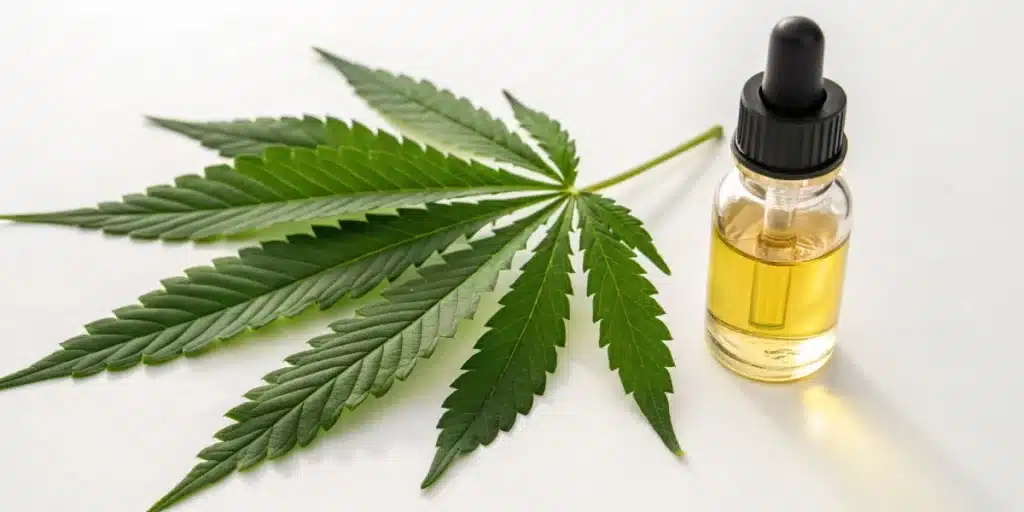
FAQs about Does CBD Suppress Appetite
Can CBD help with weight loss?
People exploring does cbd suppress appetite often integrate it into weight‑management plans. CBD’s gentle moderation of hunger can reduce impulsive snacking and curb calorie intake subtly. While it’s not a standalone solution, pairing CBD with balanced diet and regular exercise may support gradual, sustainable weight changes over weeks or months, helping users align eating habits with health goals.
How much CBD is needed to affect appetite?
Sensitivity to CBD varies, but many users start with 10 mg to 25 mg per day and observe changes in hunger over one to two weeks. Those focusing on does cbd suppress appetite typically adjust their dose by 5 mg increments based on appetite logs. Always consult a healthcare provider to tailor dosing to your individual metabolism and health status for safe, effective results.
Are there side effects when using CBD for appetite control?
Users exploring does cbd suppress appetite occasionally report dry mouth, lightheadedness, or drowsiness, especially at higher doses. These mild effects often resolve as tolerance builds over days. Staying well‑hydrated, splitting doses, and taking CBD with food can reduce discomfort while maintaining steady appetite support.

